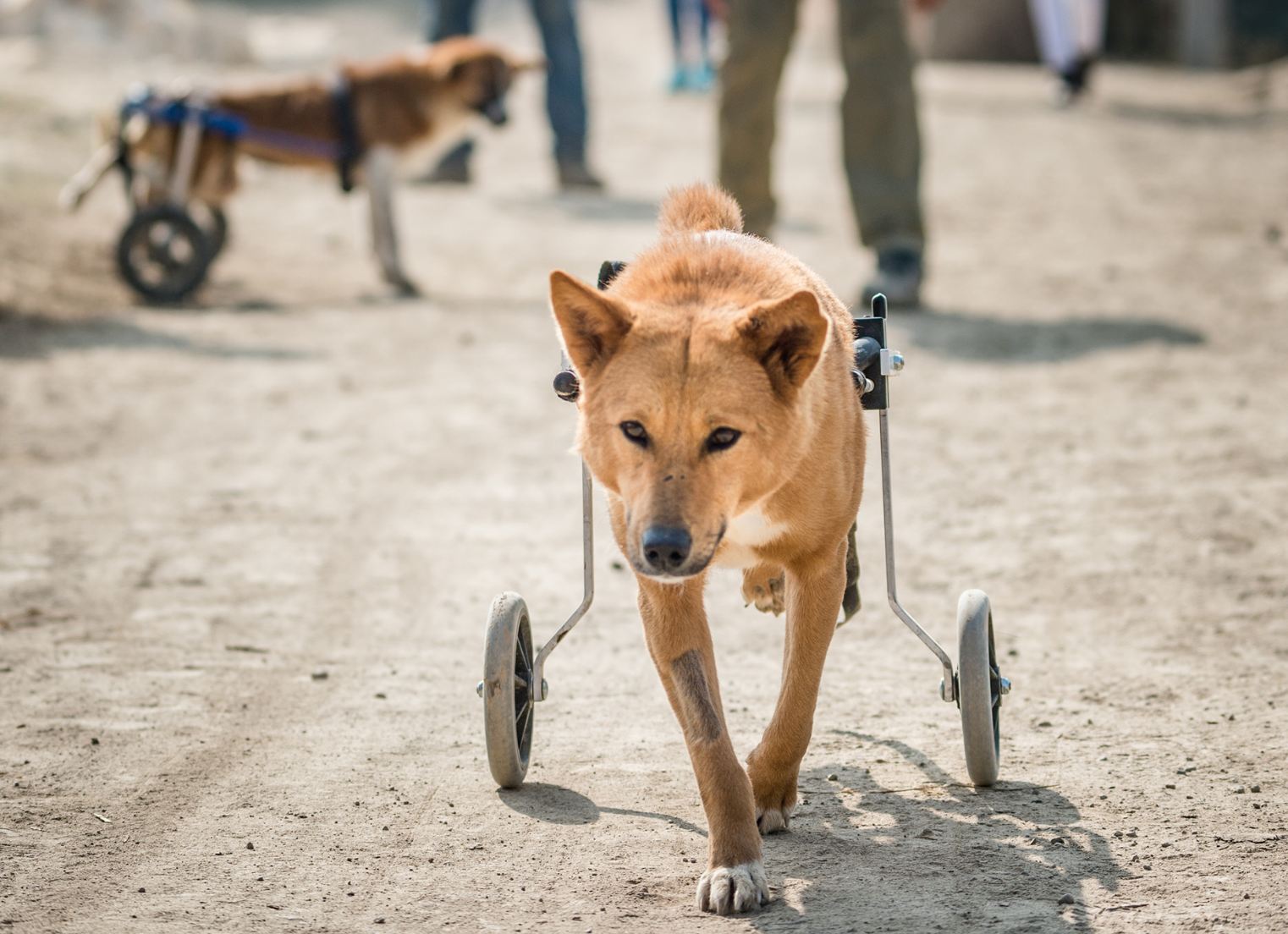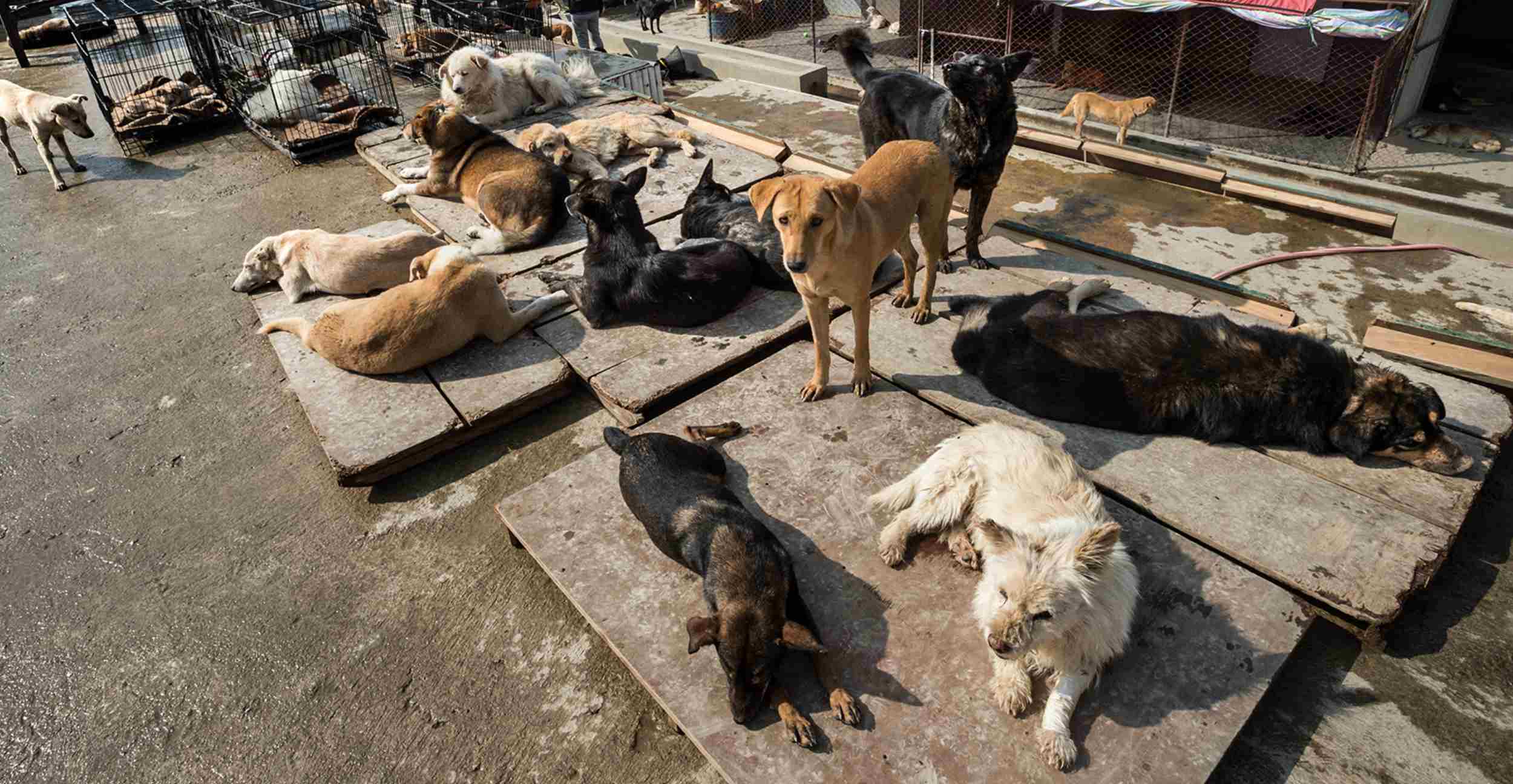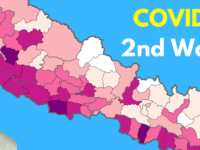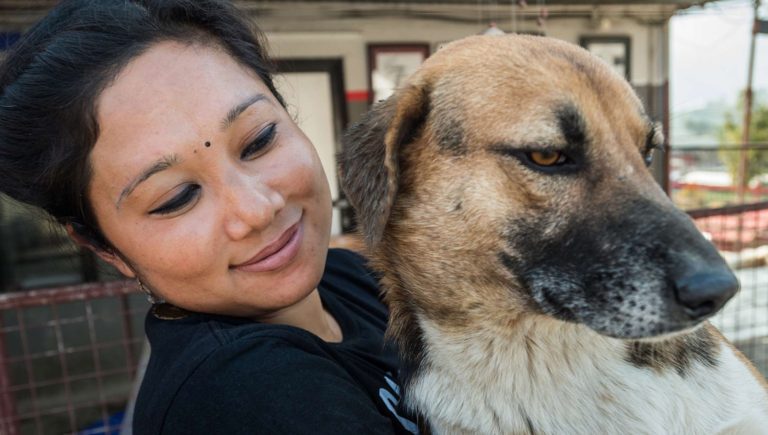Interview and story by Sayara Thurston.
Sneha Shrestha didn’t want a dog.”I wasn’t an animal lover. I wasn’t even a dog lover.”
She tells me this as we’re surrounded by more than a hundred dogs at Sneha’s Care, the shelter that Shrestha runs outside of Kathmandu in Nepal.
More than a dozen of the animals are paralyzed from the waist down and many of them are recovering from horrendous injuries – missing legs and ears and eyes and parts of their snouts – but all running, barking, playing joyfully in a space where they know they are safe and loved.
A new family member
Four years ago, after much pestering from her husband, Shrestha finally agreed to get a puppy. Two puppies, actually, though Shrestha insisted that they were bought from a breeder – she didn’t want street dogs in her home.
Despite her reluctance, one of the puppies, Zara, quickly stole Shrestha’s heart. “She was more than a family member for me. She was like a child.”
Zara would wait at the gate for Shrestha and her husband to come home from work every day. Shrestha started getting up earlier to walk the dogs and spend time with them.
Poisoned by a neighbor
But one day, Zara wasn’t at the gate at the end of the day. Shrestha found her inside, vomiting blood. She’d been poisoned by a neighbor who didn’t like her barking.
And, despite desperate efforts to save her, she died four days later. Shrestha was devastated.
“In Hindu culture, when a family member dies, we don’t eat anything for 13 days. I did this for my dog.”

Changing her mind
Knowing how Zara had suffered – and how unjustly – Shrestha began to see street dogs differently. She started feeding them, carrying dog biscuits with her wherever she went. She started noticing how many of them had injuries and desperately needed vet care.
She began paying for space at a local kennel to give dogs shelter, care, and regular meals. Within a month, the kennel was full.
But Shrestha wasn’t satisfied and she didn’t like that she wasn’t in charge of how the kennel was run. So, with the support of her husband, she sold a house she owned and opened a shelter.
A place for dogs
Today, Sneha’s Care has a new shelter facility, a team of veterinarians and technicians, and welcomes volunteers from around the world who come to spend time helping the dogs recover and find new homes (although some live permanently at the shelter).
As we talk, Shrestha looks out at the paralyzed dogs – most of them were injured in hit and run cases. People ask her why she doesn’t euthanize them.
“My father was paralyzed for 17 years. We never thought about euthanizing him,” she says poignantly. She says the only difference between him and the dogs is that my father could speak. And he explained to me that he wanted to live. Maybe these dogs also want to live. I don’t have the right to euthanize them.

Becoming vegan
Shrestha can’t buy dog wheelchairs in Nepal but she imports them. She laughs: “When I put the paralyzed dogs in the wheelchairs, they run faster than the four-legged dogs!” Read rest of this article at Plant Based News Ltd.
Photos by Jo-Anne McArthur.
Interview and story by Sayara Thurston.






















